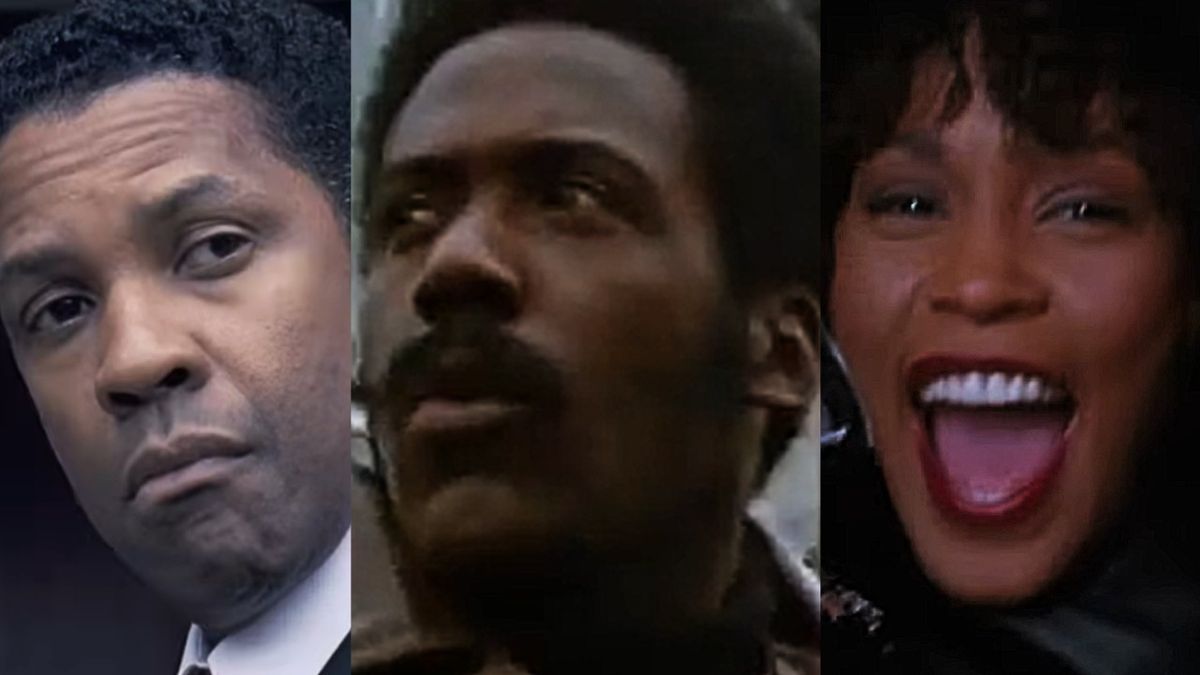Movie soundtracks are a touchstone in the cinematic experience, as seen with the Barbie soundtrack. They can either break or make accompanying movies or can exceed the film’s success (or lack thereof), especially in Black cinema. Throughout the decades, certain movie soundtracks held a chokehold on Black American culture, including Above the Rim, The Best Man, Soul Food, and New Jack City. These works and many more created an impressive soundscape that kept moviegoers revisiting them for decades.
So, here are 15 iconic Black movie soundtracks you should listen (or relisten) to this Black Music Month.
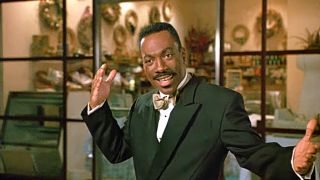
Boomerang
The monumental soundtrack, released in 1992, was for the hit Eddie Murphy workplace romantic comedy of the same name. It’s full of original songs set in early 1990s R&B and hip-hop from established and up-and-coming music artists, with production from hit-makers Babyface & L.A. Reid and Dallas Austin.
Having so many heavy hitters on the rom-com soundtrack led to a slew of chart-topping hits, including “End of the Road” by Boyz II Men, “I’d Die Without You” from PM Dawn, and “Love Shoulda Brought You Home” by then-rising star Toni Braxton. The Boomerang soundtrack ingrained itself in pop culture as it overtook the charts and went multi-platinum. It turned Toni Braxton and Boyz II Men into R&B superstars. Songs from the album are still played on the radio today.
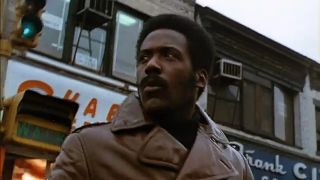
Shaft
This soul-drenched soundtrack became one of soul music’s earliest concept double albums upon being released in 1971 for the Blaxploitation action classic. The Issac Hayes album featured his trademark 1970s progressive soul (blending funk, prog rock, and psychedelic soul) as he produced, wrote, and sang the material.
Hayes captured the film’s essence by producing hit singles with the Oscar-winning “Theme from Shaft” and “Do Your Thing.” Both singles showed the work’s irresistible staying power as the film and soundtrack became a cultural phenomenon. The Shaft soundtrack’s popularity garnered multiple award nominations and led to its induction into the National Recording Registry. The film’s theme is still used in commercials and referenced in Hollywood movies.
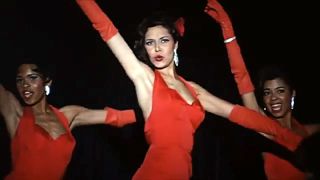
Sparkle
The girl group-influenced soundtrack was a companion to its musical drama namesake when released in 1976. The 1950s and ‘60s-inspired production and songwriting anchored the album due to Curtis Mayfield’s musicianship, with the Queen of Soul – Aretha Franklin – serving as the voice and muse.
While the film featured the cast singing, Franklin lent her soulful vocals to make “Something He Can Feel” a bonafide hit (later becoming a hit for girl group En Vogue). Of course, the single became a soul standard while pushing the Sparkle soundtrack to gold status. The film and soundtrack obtained cult status in Black music and cinema.
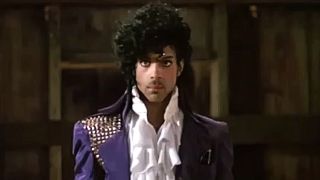
Purple Rain
The semi-autobiographical soundtrack was the companion to superstar Prince’s film debut upon its release in 1984. The album leaned heavily on pop with funk, R&B, rock, and gospel influences as Prince and the Revolution wrote, produced, and sang the material.
The musicianship and accessibility shone through, as the soundtrack produced a series of memorable and iconic singles – “When Doves Cry,” “Let’s Go Crazy,” “I Would Die 4 U,” and the title track. The entire soundtrack received significant radio play, propelled the film to box office success, and became Prince’s best-selling music release (certified diamond in the US). Purple Rain and its songs continue to find new audiences in every generation. The soundtrack’s impact saw it join the National Recording Registry, Grammy Hall of Fame, and Rolling Stone’s 500 Greatest Albums.
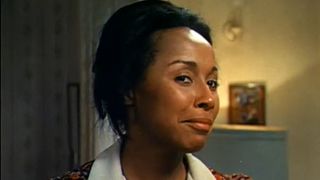
Claudine
The soul-infused soundtrack served as the soundscape for its accompanying Black struggle romantic comedy-drama upon its release in 1974. Go-to soundtrack king Curtis Mayfield crafted the music’s sound as both producer and songwriter with Gladys Knight and the Pips performing the tunes.
The album produced a notable single in the Top 10 hit “On and On,” which received decent radio play. The group’s 1970s fame boosted the Claudine soundtrack; it went gold while earning multiple award nominations.
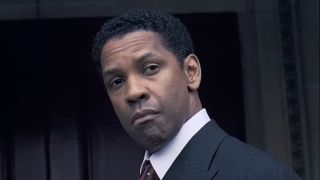
American Gangster
This mafioso rap soundtrack set itself apart from others as a concept album when released in 2007 alongside the Denzel Washington-led crime biopic. It merged modern-day gangsta rap with 1970s soul and funk, courtesy of hip-hop’s most respected producers like No I.D., Just Blaze, and The Neptunes. Rapper and mogul Jay-Z oversaw the songs as both songwriter and performer.
The album produced instant classics, including the hit “Roc Boys (And the Winner Is),” garnering strong radio play upon its release. The American Gangster soundtrack became Jay-Z’s musical return after his previous post-retirement attempt received a lukewarm reception. With that in mind, hip-hop and Hova fans still regard the soundtrack as one of his best post-retirement works. “Roc Boys” can still be heard in promotions for crime and mafia-centric movies.
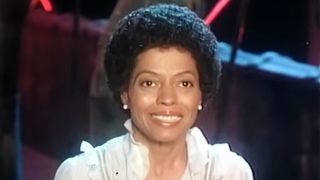
The Wiz
Taking cues from the Broadway musical, this soundtrack set the tone for the big-screen musical adaptation released in 1978. This aspect transferred the musical’s catalog to the screen as sung by the cast, with legendary producer and composer Quincy Jones shaping the album’s blend of 1970s soul, pop, and disco.
The musical work merged old with new to remarkable success courtesy of iconic singles “Ease on Down the Road” and “A Brand New Day” along with signature tune “Home.” Both singles received continuous radio play and left an impression on pop culture. The Wiz’s songs became cultural staples across music, cinema, and theatre, making the film a cult classic.
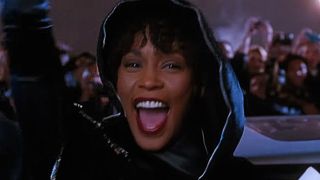
The Bodyguard
This entry became a cultural phenomenon upon its release in 1992 alongside the romantic thriller blockbuster, which is poised for a remake. The music mixed pop, R&B, and house music courtesy of hit 1980s/1990s producers and songwriters like David Foster, LA Reid & Babyface, Walter Afanasieff, and Narada Michael Walden. While marketed as a Whitney Houston album, the release featured other notable artists, including Lisa Stansfield.
The film’s huge success translated to the soundtrack singles, scoring monumental hits like “I’m Every Woman,” “I Have Nothing,” “Run to You,” and record-breaking No. 1 hit “I Will Always Love You.” Strong radio play and the romantic drama’s success launched The Bodyguard soundtrack into the cultural, cinematic, and musical zeitgeist while going diamond in the US. The album became the best-selling soundtrack and album by a female artist of all time and the best-selling album of the 1990s.
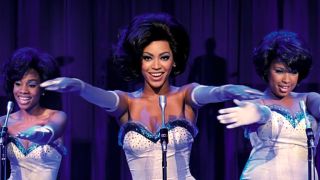
Dreamgirls
Drawing from its Broadway musical source, the soundtrack became a sensation in 2006 as its accompanying musical film arrived in theaters. The movie built upon the stage musical’s original catalog dipped in classic Motown and disco with the cast playing to the storyline and character development.
The album bolstered notable sing-along favorites “Listen” and “And I Am Telling You I’m Not Going.” The musical movie’s success and strong radio play pushed the work to platinum. These songs are still endearing staples in cinema, music, and theatre. Of course, the Dreamgirls soundtrack propelled breakout star Jennifer Hudson’s music career (and EGOT status) while keeping up the 2000s movie musical renaissance.
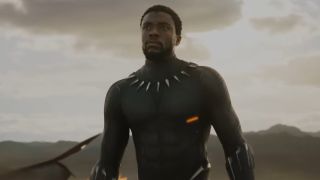
Black Panther
The Marvel superhero movie’s cultural takeover translated to its original music and score, released in 2018. That score drew from African instruments and rhythms, while the original songs were steeped in West Coast hip-hop, trap, and R&B with top producers like Sounwave and Mike Will capturing those sounds, and established and upcoming artists serving as writers and performers.
The companion works bolstered Top 10 singles like Kendrick Lamar’s “All the Stars” with SZA and “King’s Dead” with Jay Rock, Future, James Blake, and K Dot. The singles received constant airplay, pushing the release to platinum status. The Black Panther soundtrack’s success seemed like fate as the film’s blockbuster success, theme connectivity, and the chart-topping success of Lamar’s Damn album converged at one time. The album dominated pop culture and the music charts while helping the 2010s soundtrack renaissance.
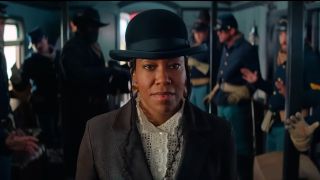
The Harder They Fall
The hard-hitting soundtrack fed the soundscape of the Netflix western film upon its release in 2021. Despite living in the Western genre, the music blended traditional country music with modern-day hip-hop, R&B, and reggae courtesy of director Jeymes Samuel’s songwriting and production and the album’s contributing artists.
While no official singles were released, the album gained a radio and streaming hit with Kid Cudi and Jay-Z’s “Guns Go Bang” and “Three and Thirty Years” by Pretty Yende. The Harder They Fall soundtrack became a streaming hit. The film’s popularity helped boost the album’s appeal after spending weeks at No. 1.
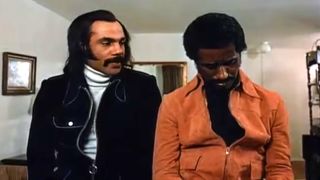
Superfly
Superfly‘s soul-infused soundtrack served as a socially conscious concept album to go with the Blaxploitation classic when it was released in 1972. Soundtrack king Curtis Mayfield managed all the production, songwriting, and vocal performances with his signature progressive soul.
Like his earlier soundtrack outings, Mayfield scored several memorable hits like “Freddie’s Dead” and “Superfly.” All the songs received significant airplay while solidifying the crime drama as a cult classic and pushing the album to platinum. The soundtrack became a cultural phenomenon while certifying Mayfield as the 1970s premier singer-songwriter and producer. This album and his other works influenced the structure and impact of movie soundtracks to this day, being named to the National Recording Registry and Rolling Stone’s 500 Greatest Albums.
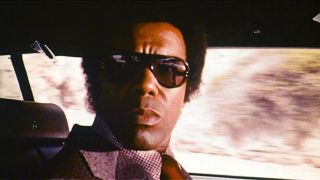
Trouble Man
Like the works of Curtis Mayfield, this soundtrack to a Blaxploitation classic was one of soul music’s earliest concept albums upon its release in 1972. Motown superstar Marvin Gaye crafted the album as producer, songwriter, and singer while blending jazz, funk, and soul.
The concept album only boasted one single in the Top 10 hit title track. The goodwill of Gaye’s earlier musical success bolstered the album. Trouble Man’s soundtrack is cited as an influential work for future soundtracks and by current-day music artists. The lone single’s radio airplay helped elevate the crime drama’s status.
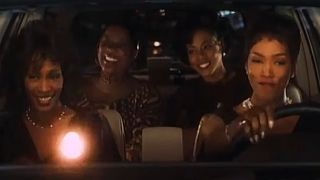
Waiting To Exhale
Soundtrack staple Whitney Houston took a backseat on this female-centric soundtrack to star in the slice-of-life romantic drama (which almost got a sequel), released in 1995. It featured premier 1990s R&B and pop production from Grammy winner Babyface, as Houston curated a tracklist filled with established and upcoming female R&B and pop artists.
Boasting top female talent allowed the soundtrack to reach multiple generations and demographics with Houston’s “Exhale (Shoop Shoop),” Mary J. Blige’s “Not Gon’ Cry,” Brandy’s “Sittin’ Up in My Room,” and Houston’s duet with CeCe Winans “Count on Me” becoming hits. The songs became ingrained in pop culture, leading the Waiting to Exhale soundtrack to multi-platinum status. At the same time, it promoted women from R&B, pop, and gospel music. Those songs still get radio spins to this day and the soundtrack became one of the best-selling of all time.
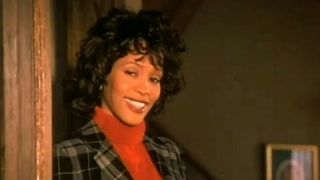
The Preacher’s Wife
Soundtrack queen Houston came with some gospel-centric tunes in 1996 to go with this Christmas-themed romantic comedy. Her final soundtrack centered around gospel with some R&B and pop offerings from notable producers and songwriters like David Foster, Babyface, Diane Warren, and Kirk Franklin.
This album gave Houston more freedom as she covered multiple bases with singles “I Believe in You and Me” and “Step by Step.” It infiltrated culture and radio, as the rom-com became a box-office success, pushing it to multi-platinum status. Also, it was credited with widening gospel music’s accessibility to mainstream audiences during the genre’s resurgence. The Preacher’s Wife soundtrack became one of the best-selling gospel albums ever.
These soundtracks pumped out hits, propelled or exceeded their parent film, and launched, revitalized, or sustained music artists’ careers. Each collection solidified itself in cinema and music history.
Black movie soundtracks haven’t stopped following the 2010s. Color Purple’s 2023 musical adaptation and The Book of Clarence provided outstanding soundtracks. Of course, more are on the horizon as upcoming 2024 movies hit theaters. Mufasa: The Lion King arrives in theaters on December 20, and the Pharrell Williams Lego biopic, Piece by Piece, should have a stellar soundtrack when released on October 11.
